By Ralph Losey with substantial assistance from ChatGPT-4. Images by Losey and Midjourney Bot.
Introduction
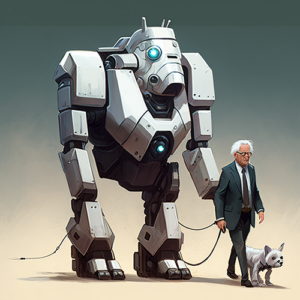
Dear Bar colleagues and fellow tech enthusiasts, this article explores the top-ten most obvious ways that Large Language Models (LLMs) such as ChatGPT-4 can revolutionize the practice of law. Additional unexpected ways are certain to reveal themselves later down the road. Prepare to embark on an journey into the emerging world of Ai enhanced legal practice.
The assistance of carefully prompted and quality controlled ChatGPT-4 software can, if used correctly, dramatically improve the legal profession. But use caution and be wary, especially in these early days. Keep your new Ai helpers on a short leash. They can make some mistakes, both big and small. As always with new tech, beware of exaggerated claims and vendor fluff.
When you start to use the new products headed our way, be very careful with quality control. Spend the time to master GPT prompting, or hire an expert to do it for you. If used properly the rewards of LLM models will be great. If not used, you may find your career at risk. The times of fast changes are upon us.
Here are the ten most obvious ways the Bots now think they can be of service to the legal profession.
- Streamlined Legal Research

Legal research is an essential yet time-consuming component of our profession. LLMs type GPT models can efficiently identify relevant legal authorities and summarize their key points, sparing you countless hours poring over case law, statutes, and regulations. It is a welcome reprieve from the laborious research process.
But beware of the time limitations of LLMs. For instances, ChatGPT-4 is based on information ending in September 2021. This problem applies across the board to all LLM tools. From what I have heard, the time issue may never be solved completely for LLMs. It is an inherent limitation.
The time limitation is an especially big problem for legal research. When ChatGPT- 3.5 first came out, I asked it about the top ten cases in 2022 once, just to see what would happen. It answered the question with complete confidence and no warnings (that has since changed), and made things up. It used pre-2022 cases, not too surprising, but it also invented cases that did not exist! That is another current problem with the GPT models so far, they can do what Ai experts call – hallucinate. Hallucinations can happen outside of the time limit questions too. The Ai just makes things up. ChatGPT-3.5 actually hallucinated a judge in my 2022 question. It created a name that, as far as I could see by Google research, was not tied to any judge in the country. I spent a fair amount of time to verify that, as I could not believe that was even possible.
Eventually, the sanity and time issues will be mitigated. (I understand the sanity issue is not systemic and should be fixed soon with better engineering.) The answer on the Chat GPT search limitations may, once again, be”multi-modal” search. You may need to use other kinds of search too, like Google or Lewis, especially for the “breaking news” type of case law. Sort of like a new kind of sheperdizing, a word that has long puzzled lay-persons when they hear lawyers talk. Still, having an Ai bot by your side to provide Answers, not just Search, will be a big benefit, especially after we get the kinks out.
![Female attorney in business suit typing on computer with smaller robot beside her [I should ask Ralph to put his generative prompts directly into the alt text.]](https://edrm.net/wp-content/uploads/2023/03/RL_ChatGPT_lawyer_3.png)
- Efficient Document Drafting
Legal document drafting can be a painstaking task. LLMs can generate templates and suggest appropriate language based on the case specifics for a wide range of documents, from contracts to pleadings and memos. The result is a more efficient and effective drafting process, allowing you to focus on other critical aspects of your practice.
- Enhanced Legal Analysis
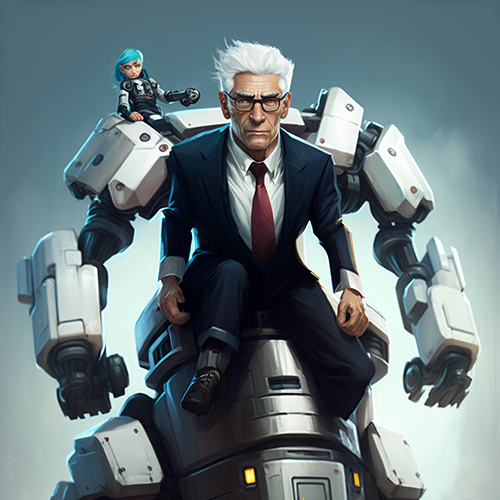
Imagine an AI assistant capable of analyzing legal issues, identifying potential arguments, and even anticipating counterarguments. LLM GPT models can provide such insights, helping you prepare for litigation or negotiations with a newfound level of confidence. Ride on the shoulders of your Ai Bots and they can make you look good. They can whisper in your ear too, like a muse to provide new ideas. So ride an Ai, but let an Ai Bot ride on your shoulders too. That’s a hybrid, recursive, win/win loop,
- Due Diligence Reinvented
Due diligence is a vital yet arduous aspect of the legal profession. GPT models can significantly streamline this process by identifying potential risks, analyzing contracts, and reviewing regulatory compliance with increased efficiency and accuracy. This AI-powered assistance can prove to be indispensable in managing complex due diligence tasks.
- Revolutionizing Contract Review
Contract review can be a laborious process riddled with revisions and potential issues. LLMs can automate contract review by extracting key terms, identifying potential issues, and suggesting possible amendments. This technological innovation can lead to more effective and efficient contract management. Prompt the Bots to do the boring stuff for you.
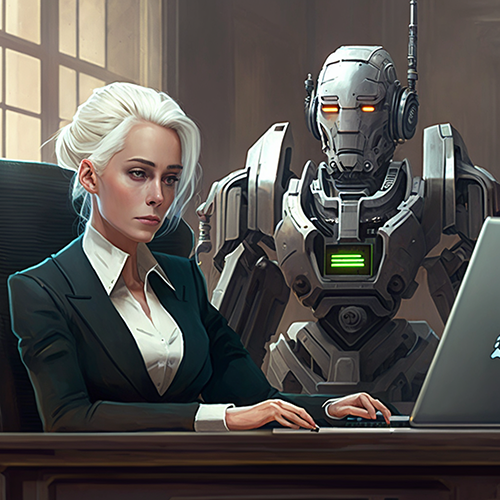
- E-Discovery Reimagined
As a specialist in e-Discovery, I can speak with confidence about the strong potential of LLM GPT models in this domain. They can be trained to sift through vast data sets, identify relevant documents, and detect otherwise hidden patterns or inconsistencies. This AI-driven approach can improve the e-Discovery process and results. It is not quite there yet, but should be soon, after issues of confidentiality and humans-in-the-loop training are resolved. Bots are great at reading at near light-speed and they never forget. Contract review attorneys who used to stare at docs all day and code them, your days are numbered. Better take you buggy-whips and retool as Bot trainers.

- Case Management Mastery
Managing multiple cases can be an organizational challenge. LLMs can help you stay on top of your workload by organizing and managing case information, tracking deadlines, maintaining client communication, and generating reports. The result is a more streamlined and efficient practice.
- Alternative Dispute Resolution (ADR) Enhanced
LLMs can provide valuable support in ADR processes, such as mediation and arbitration. By summarizing parties’ positions, identifying potential areas of agreement, and suggesting possible resolutions, AI-driven tools can contribute significantly to the successful resolution of disputes.
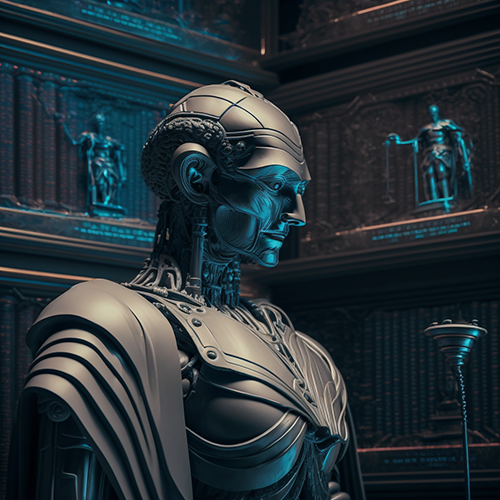
- AI-Driven Legal Education and Training
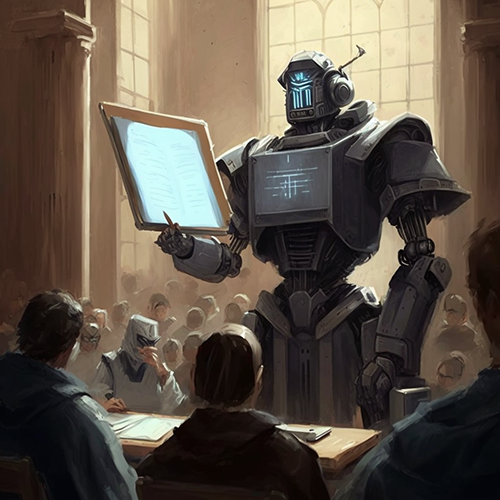
LLMs can be used to create educational materials, such as case summaries, hypothetical scenarios, or legal analysis, to help train lawyers and law students. This innovative approach can augment traditional legal education and professional development, opening the door to new possibilities in teaching and learning.
- Client Communication Elevated
Lets face it – legal jargon can be confusing for clients. But with GPT models, you can draft clear, concise, and easy-to-understand explanations of complex legal issues. Plus, you can generate timely responses to client inquiries, ensuring they feel valued and supported. You’ll become the go-to lawyer for clients seeking both tech sophistication and a human touch in a world of legal complexities.
Conclusion
In conclusion, we have presented ten ways in which LLMs like Open AI’s GPT models can, with your help and active participation, revolutionize the practice of law. These AI technologies can make our work more efficient, accurate, and even enjoyable. And let’s not forget a special shout-out to ChatGPT-4 for its assistance in crafting this essay!
Remember, the legal profession is ever-evolving, and embracing these cutting-edge tools can give you a competitive edge in the marketplace. Don’t be left behind; instead, join the AI revolution and reap the benefits. Your clients (and your sanity) will thank you.



Ralph Losey Copyright 2023 – ALL RIGHTS RESERVED

